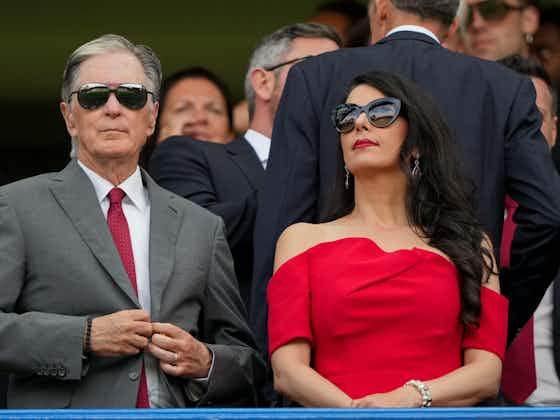Anfield Index
·9 July 2024
Paul Joyce Provides Update on FSG’s Interest in Buying Huge French Club

In partnership with
Yahoo sportsAnfield Index
·9 July 2024

Fenway Sports Group (FSG), the American powerhouse behind Premier League giants Liverpool FC, are reportedly expanding its footballing empire, setting its sights on French Ligue 2 club, Bordeaux. This ambitious move has sparked a flurry of discussions among football circles and business analysts alike, highlighting FSG’s aggressive growth strategy and the potential complexities tied to acquiring a financially troubled club.
The news, originally reported by Paul Joyce for The Times, illustrates a clear intent by FSG to diversify and strengthen its sporting portfolio. The potential acquisition of Bordeaux, a club with a prestigious history marred by recent financial instability, presents a unique challenge and opportunity for the group.

X: @FabrizioRomano
“Financial problems at the six-times French champions may yet scupper the interest,” Joyce notes, suggesting that while the desire is strong, the path to acquisition is fraught with obstacles. This is not just a purchase but a strategic move, aiming to resurrect a historic club while possibly leveraging synergistic benefits for Liverpool.
The question of financial viability looms large. Bordeaux’s current predicament in Ligue 2, facing a third consecutive season outside the top flight, is a stark reminder of the financial and sporting risks involved. Joyce points out that FSG’s legal team is spearheading negotiations, indicating the complexity and importance of the legal and financial frameworks in this deal.
If the acquisition goes through, FSG would inherit not only the club’s rich heritage but also its financial burdens. It’s a high-stakes game of balancing potential long-term benefits against immediate financial challenges.
Should the deal be finalized, Michael Edwards, FSG’s chief executive of football, is poised to play a pivotal role in Bordeaux’s revival. Having previously served as Liverpool’s sporting director, Edwards’ expertise in football operations would be crucial. Joyce mentions, “Edwards, the former Liverpool sporting director, was given an overarching role by FSG two years after he left Anfield, with one of the attractions to him the establishment of a second club.”

X: @AnfieldSector
Alongside Edwards, Pedro Marques and Julian Ward are expected to contribute significantly to the operational leadership at Bordeaux. Their combined experience in football management and technical development will be vital in steering Bordeaux back to competitive stature.
The acquisition of Bordeaux could also serve as a strategic lever for Liverpool, providing a platform for talent development and possibly a more robust scouting network in France. This could enhance Liverpool’s competitive edge in Europe, aligning with FSG’s overarching strategy to create a global sports empire.
Moreover, the presence of Albert Riera, a former Liverpool player, as Bordeaux’s coach could facilitate a smoother integration and alignment of football philosophies between the clubs, potentially enriching both sides.
In conclusion, while the potential acquisition of Bordeaux by FSG is lined with financial and operational challenges, the strategic benefits could well justify the risks involved. As FSG continues to broaden its influence in the football world, the success of this venture could either serve as a testament to their strategic acumen or a cautionary tale of overreach.
As Paul Joyce succinctly encapsulates, the situation remains fluid, with the ambitions of FSG clear but the outcome uncertain. Football fans and business analysts alike will be watching closely as FSG navigates this complex acquisition, potentially reshaping the landscape of European football club ownership.






























































